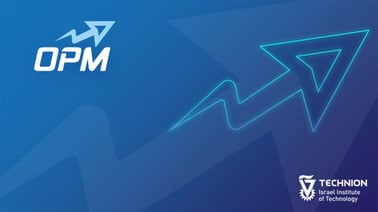MOOC – Massive Open Online Course: Professional Certificate
edX Model-Based Systems Engineering – Two-course series MBSE Professional Certificate (since 2019)
Model-based systems engineering (MBSE) is a contemporary systems engineering methodology that uses conceptual models for communication between system architects, designers, developers, and stakeholders. Object-Process Methodology (OPM, ISO 19450) is an MBSE language and methodology for constructing domain-independent conceptual models of all kinds of systems. The course provides systems engineers and others with basic knowledge and tools for MBSE using OPM, focusing on conceptual modeling of systems, giving learners a competitive advantage over their peers.
OPM has a small set of symbols and one kind of diagram, making it easy to learn and enjoyable to use. Every OPM model is composed of objects and processes, connected by relations.
OPM models include two ways of expression: graphical (Object-Process Diagram) and verbal (Object-Process Language). The methodology enables complexity management of systems via hierarchical composition. OPM is a formal yet intuitive approach to conceptual modeling. It is implemented in OPCloud, a novel Web-based OPM modeling environment.
During the course, you will learn the process of system design and development using MBSE with OPM. The course content was produced to be informative and entertaining. You will model various real-life systems in OPM – mainly technological, but also social and natural. Learning is made interactive through diverse, engaging exercises.

This course is the continuation of the basic MBSE with OPM course.
Model-based systems engineering (MBSE) is a contemporary systems engineering methodology that uses conceptual models for communication between system architects, designers, developers, and stakeholders. Object-Process Methodology (OPM, ISO 19450) is an MBSE language and methodology for constructing domain-independent conceptual models of all kinds of systems. The course provides systems engineers and others with advanced knowledge and tools for MBSE with OPM, focusing on conceptual modeling of systems, giving learners a competitive advantage over their peers.
OPM has a small set of symbols and one kind of diagram, making it easy to learn and enjoyable to use. Every OPM model is composed of objects and processes, connected by relations. OPM models include two ways of expression: graphical (Object-Process Diagram) and verbal (Object-Process Language). The methodology enables complexity management of systems via hierarchical composition. OPM is a formal yet intuitive approach to conceptual modeling. It is implemented in OPCloud, a novel Web-based OPM modeling environment.
During the course, you will learn the process of system design and development using MBSE with OPM. The course content was produced to be informative and entertaining. You will model various real-life systems in OPM – mainly technological, but also social and natural. Learning is made interactive through diverse, engaging exercises.
